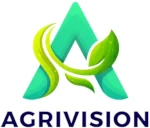Agrivision Review: Agricultural themed MLM crypto Ponzi
 Agrivision fails to provide ownership or executive information on its website.
Agrivision fails to provide ownership or executive information on its website.
Agrivision’s website domain (“agrivision.uk”), was privately registered on December 5th, 2024.
In an attempt to appear legitimate, Agrivision provides a company certificatefor Agrivision Global LTD.
Agrivision Global was purportedly registered in the UK oin December 10th, 2024.
An MLM company operating or claiming to operate out of the UK is a red flag.
UK incorporation is dirt cheap and effectively unregulated. On top of that the FCA, the UK’s top financial regulator, do not actively regulate MLM related securities fraud.
As a result the UK is a favored jurisdiction for scammers looking to incorporate, operate and promote fraudulent companies.
For the purpose of MLM due-diligence, incorporation in the UK or registration with the FCA is meaningless.
As always, if an MLM company is not openly upfront about who is running or owns it, think long and hard about joining and/or handing over any money.
Agrivision’s Products
Agrivision has no retailable products or services.
Affiliates are only able to market Agrivision affiliate membership itself.
Agrivision’s Compensation Plan
Agrivision affiliates invest USD equivalents in cryptocurrency.
- Sprout – invest $15 to $2499 and receive 1.5% a day
- Bloom – invest $2500 to $9999 and receive 1.75% a day
- Harvest – invest $10,000 to $24,999 and receive 2% a day
- Thrive – invest $25,000 to $100,000 and receive 2.5% a day
Note that Agrivision charges a 10% withdrawal fee.
The MLM side of Agrivision pays on recruitment of affiliate investors.
Agrivision Affiliate Ranks
There are three ranks within Agrivision’s compensation plan.
Along with their respective qualification criteria, they are as follows:
- Associate – sign up as an Agrivision affiliate, invest at least $100 and generate $2500 in downline investment
- Executive – invest at least $250 and generate $5000 in downline investment
- Manager – invest at least $500 and generate $10,000 in downline investment
Referral Commissions
Agrivision pays referral commissions via a unilevel compensation structure.
A unilevel compensation structure places an affiliate at the top of a unilevel team, with every personally recruited affiliate placed directly under them (level 1):

If any level 1 affiliates recruit new affiliates, they are placed on level 2 of the original affiliate’s unilevel team.
If any level 2 affiliates recruit new affiliates, they are placed on level 3 and so on and so forth down a theoretical infinite number of levels.
Agrivision caps payable unilevel team levels at six.
Referral commissions are paid as a percentage of cryptocurrency invested across these six levels as follows:
- level 1 (personally recruited affiliates) – 10%
- level 2 – 8%
- level 3 – 6%
- level 4 – 4%
- levels 5 and 6 – 2%
Rank Achievement Bonus
Agrivision rewards affiliates for qualifying at Associate and higher with the following Rank Achievement Bonuses:
- qualify at Associate and receive $100 a month for two months
- qualify at Executive and receive $250
- qualify at Manager and receive $500
Joining Agrivision
Agrivision affiliate membership is free.
Full participation in the attached income opportunity requires a minimum $15 investment.
Agrivision solicits investment in various cryptocurrencies.
Agrivision Conclusion
Agrivision represents it generates external revenue through “agricultural commodities export” and “investing in equity of agri-product companies”.
Putting aside Agrivision is barely a few weeks old, Agrivision’s business model fails the Ponzi logic test.
If Agrivision is already exporting commodities and investing in companies to the tune of 2.5% a day, what do they need your money for?
As it stands the only verifiable source of revenue entering Agrivision is new investment.
Using new investment to pay ROI withdrawals would make Agrivision a Ponzi scheme.
As with all MLM Ponzi schemes, once affiliate recruitment dries up so too will new investment.
This will starve Agrivision of ROI revenue, eventually prompting a collapse.
The math behind Ponzi schemes guarantees that when they collapse, the majority of participants lose money.

